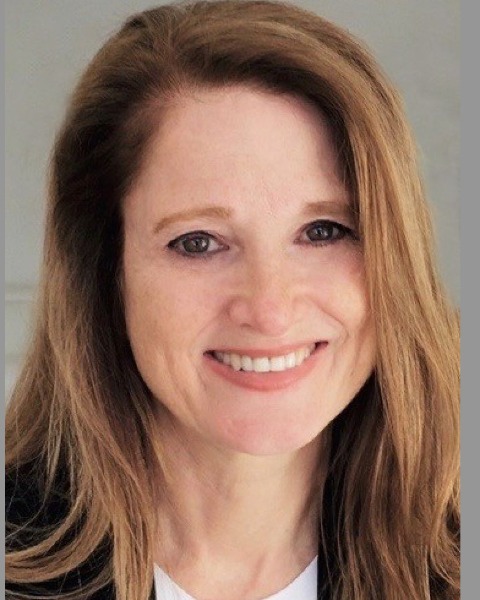Youth Focused Evaluation
Youth Participatory Action Research: Telling the story of well-being across identity groups
-
AJ
Andrea Juarez Mendoza, Phd
Researcher
City University of New York, Graduate Center
New York, New York, United States -

Kim Sabo-Flores, PhD (she/her/hers)
Co-Founder & CEO
Hello Insight
Atlanta, Georgia, United States -
DA
Desiree Armas, BA
Researcher
Fresh Tracks
Elizabeth, New Jersey, United States -
NF
Niara Frankson, BA
Researcher
Fresh Tracks
Brooklyn, New York, United States -
SQ
Chair(s)
Disscussant(s)
Presenter(s)
Location: Room 102
Abstract Information: How do culture, values, and circumstances nurture the well-being of youth and young adults? Too often, this question is answered by adults on behalf of youth and their communities. This panel will share a collaborative intergenerational effort undertaken by young people and adult allies from numerous communities and organizations across the United States and Canada to define, collect, and analyze data that tells the stories of well-being within and across three cultural identity groups - American Indian/Alaska Native (AIAN), Latine, and Black Expressions.
Relevance Statement: In 2021, the US Surgeon General Published a Report entitled; Protecting Youth Mental Health in which he states: “the challenges today’s generation of young people face are unprecedented and uniquely hard to navigate. And the effect these challenges have had on their mental health is devastating''. Black, Indigenous, and young people of color (BIPOC) have been greatly affected due to financial insecurity, disproportionate contraction rates and serious illness from COVID-19, persistent policy brutality, and chronic stress in response to centuries of racial injustice and anti-Black racism. To address these challenges, more than $700 million dollars are slated to be spent on programs to address the mental health crisis this year alone. However, little has been done to create culturally relevant solutions that address the different views of mental health and wellbeing, treatment-seeking patterns, the nature of therapeutic relationships, and systemic racism, discrimination, and adultism within the mental health system. A racial equity lens must be applied, recognizing that not all BIPOC young people have the same mental health needs (Quirk, A. 2020). In response, young leaders have emerged, influencing state policy to improve mental health (Mental Health America 2020) and are putting forth solutions based in their communities and culture. The Youth and Young Adult Wellbeing Project is one such effort, engaging young researchers from three cultural identity groups -American Indian/Alaska Native, Latine, and Black - all defining, collecting, and analyzing data to tell their stories of well-being with the intention of, not only understanding well-being but also creating and centering solutions that recognize their diverse communities and needs. This work leverages youth participatory action research and evaluation principles and frameworks that involve young people in planning studies, creating methods, gathering data, analyzing, and using findings (Sabo Flores, 2007). Youth participation in research and evaluation took root after the signing and ratification of the International Convention on the Rights of the Child (CRC) in 1989, which included language that was broadly accepted as an assertion of young people’s right to be involved and participate in decisions and events that affect them (Assembly U.G., 1989). Following this landmark event, there was an acceleration of participatory activities around the world. Over the years, the field has increased its legitimacy and recognition as a distinct and important field (Richards-Schuster & Plachta Elliott, 2019). Citations Assembly, U. G. (1989). Convention on the Rights of the Child. United Nations, Treaty Series, 1577(3). Flores, K. S. (2007). Youth participatory evaluation: Strategies for engaging young people (Vol. 14). John Wiley & Sons. Mental Health America (2020). Addressing The Youth Mental Health Crisis: The Urgent Need For More Education, Services, And Supports Quirk, A. (2020) Mental Health Supports for Students of Color During and After the Coronavirus Pandemic. Center for American Progress. Richards-Schuster, K., & Plachta Elliott, S. (2019). A Practice Matrix for Involving Young People in Evaluation: Possibilities and Considerations. American Journal of Evaluation, 1098214019832113.
Presentations:
-
3:45 PM - 4:45 PM ETEngaging Youth and Young Adults As Researchers, Creating Measures of Wellbeing For and With Their Communities
Presenter: Kim Sabo-Flores, PhD (she/her/hers) – Hello Insight
-
3:45 PM - 4:45 PM ETTelling Our Story Of Wellbeing Using a YPAR Approach
Presenter: Andrea Juarez Mendoza, Phd – City University of New York, Graduate Center
-
3:45 PM - 4:45 PM ETTelling the story of culture, values, and circumstances that nurture the well-being of Black youth and young adults
Presenter: Niara Frankson, BA – Fresh Tracks
-
3:45 PM - 4:45 PM ETTelling the story of culture, values, and circumstances that nurture the well-being of Latine youth and young adults
Presenter: Desiree Armas, BA – Fresh Tracks
-
3:45 PM - 4:45 PM ETYouth and Young Adult Wellbeing: A youth-led participatory action research project to define and measure well-being
Presenter: Juan Martinez Pineda, MA – The Aspen Institute
